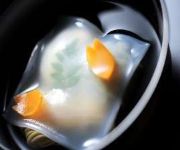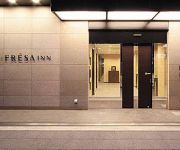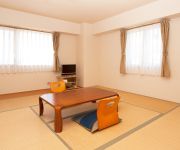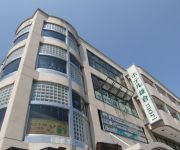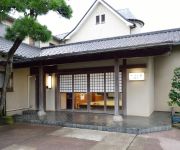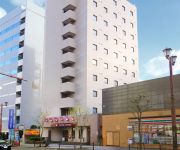Safety Score: 2,8 of 5.0 based on data from 9 authorites. Meaning we advice caution when travelling to Japan.
Travel warnings are updated daily. Source: Travel Warning Japan. Last Update: 2024-08-13 08:21:03
Delve into Nishigayatsu
The district Nishigayatsu of Nikaidō in Kamakura Shi (Kanagawa) is a subburb in Japan about 26 mi south of Tokyo, the country's capital town.
If you need a hotel, we compiled a list of available hotels close to the map centre further down the page.
While being here, you might want to pay a visit to some of the following locations: Kamakura, Zushi, Fujisawa, Yokosuka and Yokohama. To further explore this place, just scroll down and browse the available info.
Local weather forecast
Todays Local Weather Conditions & Forecast: 12°C / 54 °F
| Morning Temperature | 12°C / 54 °F |
| Evening Temperature | 14°C / 58 °F |
| Night Temperature | 12°C / 54 °F |
| Chance of rainfall | 0% |
| Air Humidity | 40% |
| Air Pressure | 1017 hPa |
| Wind Speed | Strong breeze with 19 km/h (12 mph) from South |
| Cloud Conditions | Overcast clouds, covering 100% of sky |
| General Conditions | Overcast clouds |
Sunday, 24th of November 2024
12°C (53 °F)
12°C (54 °F)
Broken clouds, moderate breeze.
Monday, 25th of November 2024
11°C (53 °F)
13°C (55 °F)
Sky is clear, moderate breeze, clear sky.
Tuesday, 26th of November 2024
13°C (55 °F)
19°C (67 °F)
Light rain, gale, overcast clouds.
Hotels and Places to Stay
Kamakura Park Hotel
(RYOKAN) Kotsubo Kaigan Rinka
Sotetsu Fresa Inn Yokohama Totsuka
Hayamakan (Kanagawa)
Hotel Kamakura Mori
(RYOKAN) Kaihinso Kamakura
Hotel Mets Kamakura Ofuna
Minshuku Yamakawa
Hotel Wing International Shonan Fujisawa
Hotel Hokke Club Shonan Fujisawa
Videos from this area
These are videos related to the place based on their proximity to this place.
Kamakura, Japan
http://kydeanderic.com/Kamakura http://www.patreon.com/kydeanderic http://facebook.com/kydeanderic http://twitter.com/kydeanderic http://reddit.com/r/KydeandEric/ Shot with a Sony DSC-HX50V.
横須賀線鎌倉駅 Kamakura Station on Yokosuka Line
鎌倉駅発着の「横須賀線」・「成田エクスプレス」・「湘南新宿ライン」。 "Yokosuka line" train, the "Narita Express", and "Shonan-Shinjuku Line", departing and...
Kamakura
Kamakura is a city located in Kanagawa Prefecture, Japan, about 50 kilometres south-south-west of Tokyo. Although Kamakura proper is today rather small, it is often described in history books...
KAMAKURA DANCE FESTIVAL 【公式 PV】
KAMAKURA DANCE FESTIVAL 2014 開催決定!!/ ※English is below http://kamakuradancefestival.com/ 歴史深く数々の芸術が育まれてきた鎌倉。 KDFとは、時代の先...
New Starbucks in Kamakura スターバックス鎌倉 (with tatami and swimming pool!!!)
http://www.starbucksmug.com/2011/08/japan-2008-starbucks-mug/ ~ Had a little trip to Kamakura this past few days and on our way back from an Inari fox shrine we found this awesome new design...
Autumn-Leaves at Kamakura-gū (鎌倉宮 紅葉)
Kamakura-gū is a shrine in Kamakura, Kanagawa Prefecture, Japan. It was erected by Emperor Meiji in 1869 to enshrine the spirit of Prince Morinaga, who was imprisoned and later executed where...
Temple railway station: Kita-Kamakura (JR East Yokosuka Line) near Engaku-ji
Tucked between hilly terrain, small houses (including a Michelin 2-star restaurant!) and the nearby beautiful Engaku-ji Temple, Kita-Kamakura Station on the JR East Yokosuka Line (about 30-40...
Kamakura
A day excursion from Tokyo to visit Kamakura, its shrines, and the large bronze budha named Kotoku-in.
Kamakura 鎌倉 (FoF45)
Day 267 in Japan: Seeing Zeniarai-benten, Hase-dera, the Kamakura Daibutsu and having sweet potato ice cream.
【鎌倉散歩】 Kamakura, The Great Buddha, Hasedera temple, Enoden and Tsurugaoka Hachimangu: a day walk
Walking in Kamakura with my iPhone5. Let's take a walk. 00:00 - Around Enoden Kamakura Station 01:33 - Around Enoden Hase Station to Kotoku-in, The Great Buddha 02:39 - Kotoku-in 03:02 - The...
Videos provided by Youtube are under the copyright of their owners.
Attractions and noteworthy things
Distances are based on the centre of the city/town and sightseeing location. This list contains brief abstracts about monuments, holiday activities, national parcs, museums, organisations and more from the area as well as interesting facts about the region itself. Where available, you'll find the corresponding homepage. Otherwise the related wikipedia article.
Tsurugaoka Hachiman-gū
is the most important Shinto shrine in the city of Kamakura, Kanagawa Prefecture, Japan. The shrine is at the geographical and cultural center of the city of Kamakura, which has largely grown around it and its 1.8 km approach. It is the venue of many of its most important festivals, and hosts two museums.
Engaku-ji
Not to be confused with Enryaku-ji in Kyoto. Zuirokuzan Engaku Kōshō Zenji, or Engaku-ji (円覚寺), is one of the most important Zen Buddhist temple complexes in Japan and is ranked second among Kamakura's Five Mountains. It is situated in the city of Kamakura, in Kanagawa prefecture to the south of Tokyo.
Kenchō-ji
Kenchō-ji (建長寺) is a Rinzai Zen temple in Kamakura, Kanagawa Prefecture, Japan, which ranks first among Kamakura's so-called Five Great Zen Temples (the Kamakura Gozan) and is the oldest Zen training monastery in Japan. These temples were at the top of the Five Mountain System, a network of Zen temples started by the Hōjō Regents. Still very large, it originally had a full shichidō garan and 49 subtemples.
Kamakura-gū
is a shrine in Kamakura, Kanagawa Prefecture, Japan. It was erected by Emperor Meiji in 1869 to enshrine the spirit of Prince Morinaga, who was imprisoned and later executed where the shrine now stands in 1335 by order of Ashikaga Tadayoshi. For this reason, the shrine is also known as Ōtōnomiya or Daitōnomiya from the Prince's full name (Ōtōnomiya Morinaga).
Kamakura Station
Kamakura Station is a railway station on the Yokosuka Line in Kamakura, Kanagawa, Japan, operated by East Japan Railway Company (JR East).
Meigetsu-in
Meigetsu-in is a Rinzai Zen temple of the Kenchō-ji school in Kita-Kamakura, Kanagawa, Japan. Famous for its hydrangeas, it's also known as The Temple of Hydrangeas (ajisai-dera). The main object of worship is goddess Shō Kannon (聖観音).
Jufuku-ji
, usually known as Jufuku-ji, is a temple of the Kenchō-ji branch of the Rinzai sect and the oldest Zen temple in Kamakura, Kanagawa Prefecture, Japan. Ranked third among Kamakura's prestigious Five Mountains, it is number 24 among the Thirty-Three Kamakura Kannon pilgrimage temples and number 18 of the Kamakura Nijūyon Jizō temples. Its main object of worship is Shaka Nyorai.
Tōshō-ji
was the Hōjō clan's family temple in Kamakura during the Kamakura period. Its founder was Taikō Gyōyū and it was constructed in 1237 by Hōjō Yasutoki in memory of his mother, who had her tomb there. According to the Taiheiki, from its foundation until the end of the Kamakura shogunate every regent was buried there. The temple no longer exists, since it was set on fire by the Hōjō themselves when the entire family committed suicide after Nitta Yoshisada's invasion of Kamakura on July 4, 1333.
Komachi (Kanagawa)
Komachi is a locality (a machi or chō) in Kamakura, Kanagawa prefecture, Japan, defined as the part of town north of the Ebisubashi bridge on the Namerigawa. The part of town south of the same bridge is called Ōmachi .
Nishi Mikado
is the name of a neighborhood (a chō) in Kamakura, a city located in Kanagawa, Japan, about 50 km south-south-west of Tokyo. Nishi Mikado lies north-east of Tsurugaoka Hachiman-gū.
Wakamiya Ōji
is a 1.8 km street in Kamakura, a city in Kanagawa Prefecture in Japan, unusual because it is at the same time the city's main avenue and the approach of its largest Shinto shrine, Tsurugaoka Hachiman-gū. Over the centuries Wakamiya Ōji has gone thorough an extreme change. A heavily trafficked road today, it used to be, to the contrary, off limits to most people as a sacred space.
Kantō kubō
(also called Kantō gosho, Kamakura kubō, or Kamakura gosho) was a title equivalent to shogun assumed by Ashikaga Motouji after his nomination to Kantō kanrei, or deputy shogun for the Kamakura-fu, in 1349. Motouji transferred his original title to the Uesugi family, which had previously held the hereditary title of shitsuji, and would thereafter provide the Kantō kanrei.
Ōkura Bakufu
(also called Ōkura Gosho is the name of shogun Minamoto no Yoritomo's first government. It took its name from the location in Kamakura, Kanagawa prefecture, where Yoritomo's palace used to stand. Ōkura in Kamakura is defined as the area comprised between Tsurugaoka Hachiman-gū, the Asaina Pass, the Namerigawa river and the Zen temple of Zuisen-ji.
Komachi Ōji
is a street in Kamakura, Kanagawa, Japan, that begins at Sujikaebashi (locality named after a bridge which no longer exists) from the Kanazawa Kaidō, crosses Yoko Ōji, passes in front of Hōkai-ji and Honkaku-ji, crosses the Ebisudōbashi Bridge (see photo), Ōmachi Ōji and Kuruma Ōji, reaches Moto Hachiman and Kōmyō-ji, and finally ends in Zaimokuza near Wakaejima. It is believed this is what the Azuma Kagami calls "Komachi Ōji" and other texts "Komachi Kōji".
Ima Kōji
, sometimes also called Ima Ōji is the name of a section of a longer street in Kamakura, Kanagawa, Japan. Strictly speaking, Ima Kōji goes from Katsu no Hashi Bridge in front of Jufuku-ji to Tatsumi Jinja Shrine about 400 m further south, but the name is used all the way to the intersection with Yuigahama Avenue. Although certainly old enough, historical documents written at the time of the Kamakura shogunate like the Azuma Kagami do not mention it.
Yoko Ōji
Yoko Ōji is the name of a short street in Kamakura, Kanagawa, Japan which begins in front of Tsurugaoka Hachiman-gū, the city's most important Shinto shrine and ends in front of Hōkai-ji. It is believed to be the street that passed in front of the so-called Ōkura Bakufu, seat of first shogun Minamoto no Yoritomo's first government, which was in turn a section of the old Kanazawa Kaidō.
Nikaidō
is the name of one of the administrative units of Kamakura, a city located in Kanagawa, Japan, about 50 km south-south-west of Tokyo. Nikaidō lies immediately to the east of Nishi Mikado and Yukinoshita, and used to be called Higashi Mikado. The name is still sometimes used. In it lie famous temples and shrines like Zuisen-ji, Egara Tenjinsha, Kamakura-gū and Kakuon-ji. It's in Nikaidō that first Kamakura shogun Minamoto no Yoritomo built Yōfuku-ji, one of his most important temples.
Myōhō–ji
Myōhō–ji is a Buddhist temple of the Nichiren sect in Kamakura, Kanagawa, Japan. It is one of a group of three built near the site in Matsubagayatsu, or the Valley of Pine Needles, where Nichiren, founder of the Buddhist sect that bears his name, is supposed to have had his hut. The temple has also close ties with Prince Morinaga and the Imperial House.
Zuisen-ji
is a Buddhist temple of the Rinzai sect in Nikaidō's Momijigayatsu Valley (紅葉ヶ谷, Valley of the Autumn Leaves) near Kamakura, Japan. During the Muromachi period it was the family temple of the Ashikaga rulers of Kamakura: four of the five kubō are buried there in a private cemetery closed to the public and first kubō Ashikaga Motouji's is also known with the name Zuisen-ji-den .
Chōju-ji (Kamakura)
is a Rinzai Buddhist temple of the Kenchō-ji school in Yamanouchi (a.k.a. Kita-Kamakura), near Kamakura, Kanagawa Prefecture, Japan. It lies between two Kita-Kamakura landmarks, the entrance of the Kamegayatsu Pass and Kenchō-ji, the oldest Zen monastery in Japan. Chōju-ji is one of two bodaiji, or funeral temples, dedicated to Ashikaga Takauji, founder of the dynasty of shoguns that carries his name. (The other is Kyoto's Tōji-in.
Jōmyō-ji (Kamakura)
is a Zen Buddhist temple of the Rinzai sect, Kenchō-ji school, in Kamakura, Kanagawa Prefecture, Japan. Jōmyō-ji is Number Five of the five temples known as Kamakura Gozan ("Kamakura's Five Mountains"), and the only one of the five not founded by a member of the Hōjō clan. Jōmyō-ji has instead, as nearby Zuisen-ji, deep ties with the Ashikaga clan, and was one of the family's funeral temples. For this reason the family's kamon, or crest, is ubiquitous on its premises.
Hōkai-ji (Kamakura)
is a Buddhist temple in Kamakura, Kanagawa Prefecture, Japan. Often called Hagidera, or "bush-clover temple", because those flowers are numerous in its garden, its existence is directly linked to a famous tragedy that on July 4, 1333 wiped out almost the entire Hōjō clan, ruler of Japan for 135 years.
Sugimoto-dera
Sugimoto-dera is a Buddhist temple in Kamakura, Kanagawa Prefecture, Japan, one of the oldest temple in Kamakura and, together with Hōkai-ji, the only one of the Tendai denomination. The temple is Number one of the Bandō Sanjūsankasho pilgrimage circuit. Two of the three statues of goddess Kannon it enshrines are Important Cultural Properties. Sugimotodera is nicknamed Geba Kannon ("Dismount Kannon"), because horsemen never failed to dismount from their steeds when they passed by.
Tomb of Minamoto no Yoritomo
The tomb of Minamoto no Yoritomo (see photo below) is a monument in Kamakura, Kanagawa, Japan, located some hundred meters north of the site where the palace called Ōkura Bakufu, seat of Minamoto no Yoritomo's government, once stood. Although there is no evidence his remains are actually there, it is commonly assumed to be the resting place of Minamoto no Yoritomo, founder and first shogun of the Kamakura shogunate.
Hōkoku-ji
Hōkoku-ji is an old temple in the Kenchō-ji school of the Rinzai sect of Zen Buddhism located in Kamakura, Japan. Famous for its bamboo garden, it is also known as "Bamboo Temple". A statue of Gautama Buddha, called Shaka Nyorai in Japanese, in a sacred hall is the temple's principal image. The original of a statue of Sho Kan'non is on display at the Kamakura Museum of National Treasures.


